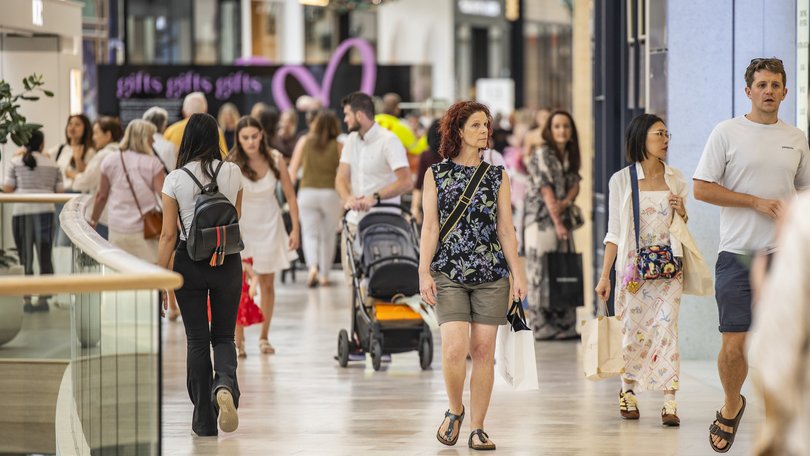Flat retail sales in April could force RBA to provide additional rate cuts ‘sooner than we expect’
Flat retail sales in April could force the Reserve Bank to provide additional rate cuts sooner than expected, economists say, after back-to-back public holidays failed to lift spending.

Flat retail sales in April could force the Reserve Bank to provide extra rate cuts sooner than expected, economists say, after back-to-back public holidays in the month failed to lift spending.
Retail turnover underwhelmed expectations for a third-consecutive month of growth and fell 0.1 per cent to $37.2 billion, fresh figures from the Australian Bureau of Statistics revealed on Friday.
Economists were looking for a 0.3 per cent bounce, believing consumers were starting to open their wallets after February’s rate cut from the RBA.
Sign up to The Nightly's newsletters.
Get the first look at the digital newspaper, curated daily stories and breaking headlines delivered to your inbox.
By continuing you agree to our Terms and Privacy Policy.They also tipped a boost from Queenslanders who spent more than usual in April following cyclone Alfred on the east coast and as the Easter and Anzac Day long weekends opened up the opportunity to travel and splurge.
“Despite these factors, retail sales pulled back and clearly showed that consumers remained very cautious about spending, especially on discretionary items,” AMP economist My Bui said.
“Overall, real retail spending per person has stagnated since the beginning of the year, after improving throughout 2024.”
Ms Bui said on a longer-term basis, total retail spending had improved from the trough, but the recovery had stalled.
While nominal retail revenues were still up 3.8 per cent since last April, real retail sales — which have been adjusted for inflation — were only up by about 1.4 per cent over the past year.
Oxford Economics Australia lead economist Ben Udy said he expected consumption to rise over the rest of the year, supported by the recovery in real household incomes and RBA rate cuts.
“But unless consumption picks up a little more strongly in the coming months, the RBA may cut rates even sooner than we currently expect,” he said.
The central bank’s 0.25 basis-point reduction of the cash rate earlier this month was the second round of relief following 13 hikes since it began lifting rates in 2022. The cash rate now sits at 3.85 per cent.
Queensland posted the biggest jump in retail turnover in April, up 1.4 per cent, followed by WA, which was up 0.4 per cent. All other States and Territories recorded falls.
“Queensland retailers recovered from last month’s temporary business closures and fewer customers,” ABS head of business statistics Robert Ewing said.
There were mixed results across industries, with the biggest falls recorded in clothing, footwear and personal accessory retailing, as well as department stores — both down 2.5 per cent.
“Clothing retailers told us that the warmer-than-usual weather for an April month saw people holding off on buying clothing items, especially new winter season stock,” Mr Ewing said.
Food-related spending continued to rise, with growth in cafes, restaurants and takeaway food services up 1.1 per cent.

